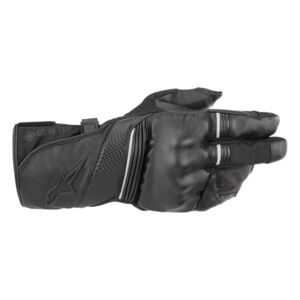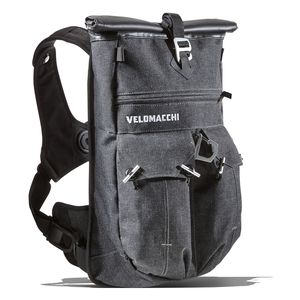By any sane standard, Yamaha’s MT-10 is a high-performance motorcycle. Horsepower, technology, funky looks — you name it, the bike’s got it. The only reason anyone ever thinks otherwise is that the MT-10 lives among giants.
The most berserk adrenaline junkies among us motorcyclists will say that Aprilia’s Tuono V4, BMW’s S 1000 R, Ducati’s Streetfighter V4, KTM’s 1290 Super Duke, and Triumph’s Speed Triple RS have all contributed to raise the bar of what it takes to be in the conversation as one of the best super-naked machines in the world. Not just naked, in other words, but downright super. Can a bike even step into that arena without braided brake-steel lines and high-end suspension?
Yamaha has obviously had the same question on its collective mind for a while, as the up-spec MT-10 SP has been for sale outside the U.S. market for years now. For us ‘Mericans, 2022 is technically our first taste. This SP you see here is almost identical to the MT-10 I tested recently in North Carolina and on Daily Rider, with a few changes.
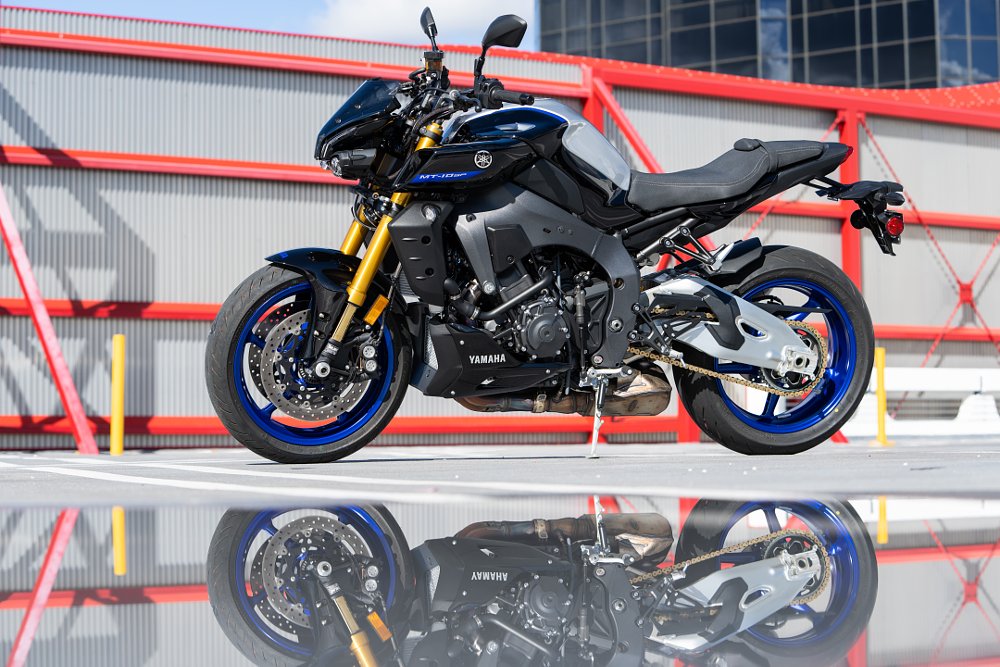
SP vs non-SP: The specs
First, the good stuff. Most likely to justify the $2,900 price jump ($3,000 for 2023) from base bike to SP is the electronic, semi-active Öhlins fork and shock. Aside from being high-end and fully adjustable units, they offer electronic control and integration into the bike’s ECU to change settings via the dash and read IMU data on the fly. They also add a few pounds to the SP’s total weight. The other nice performance tidbit on the MT-10 SP are the braided-steel front brake lines, replacing the rubber ones from the base bike.
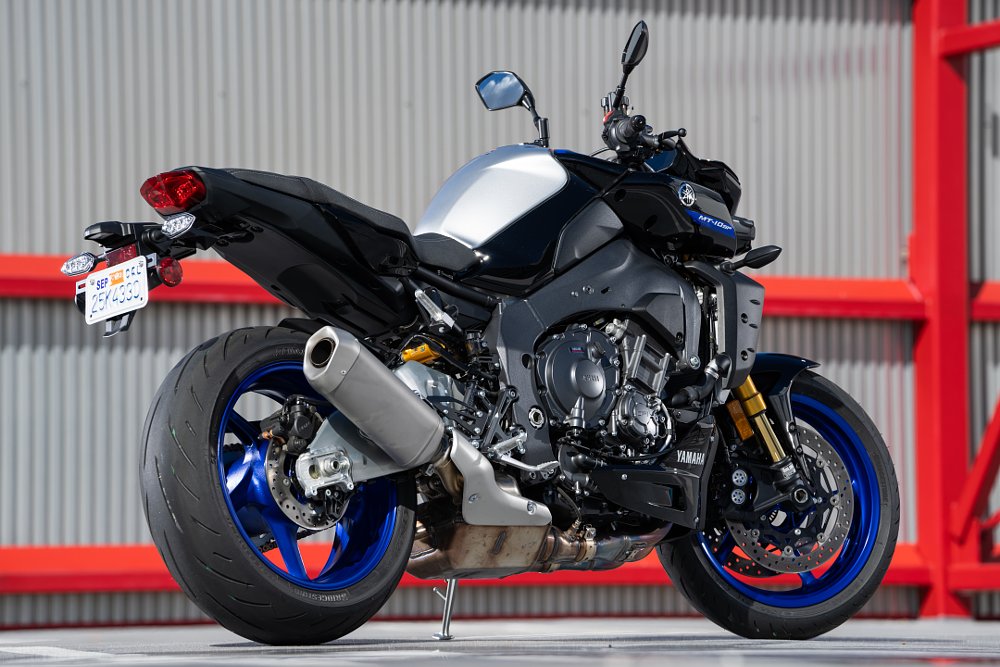
Less important but maybe more noticeable, this SP gets a brush-finished swingarm and the “R1M-inspired” color scheme, plus additional bodywork shrouding the oil cooler just behind the front wheel. If you’re really reaching, there’s contrast stitching on the seat and a gold-colored chain. Everything else, from stem to stern, is the same as the standard MT-10.
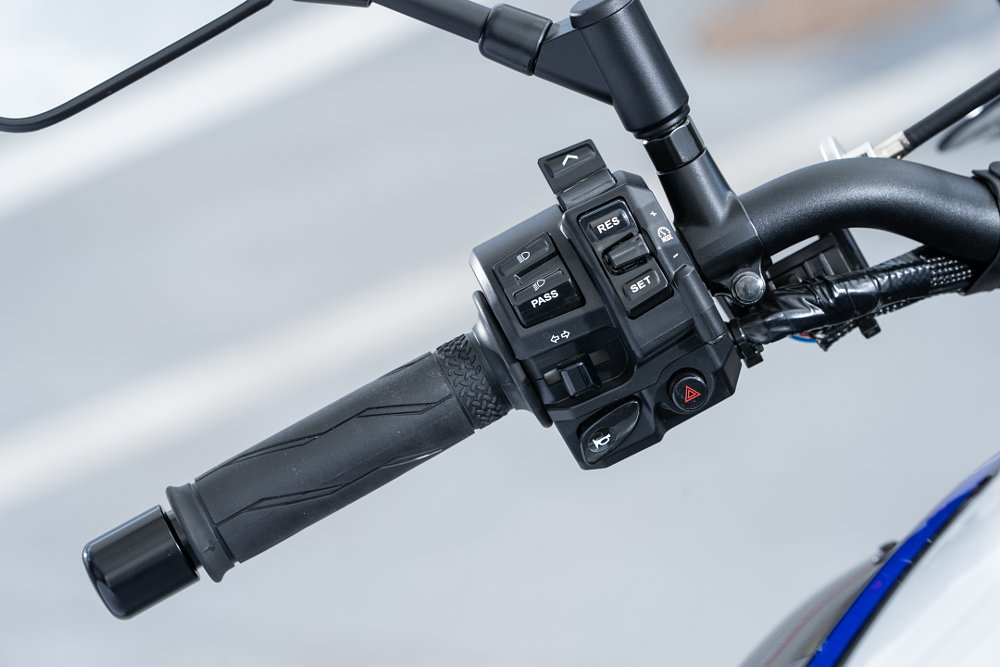
All of this means that the MT-10 SP feels similar to the standard bike and, like I said about the minimal updates for this model year, that’s a good thing. The biggest difference is the suspension, which offers more feedback and convenience than the basic (but also fully adjustable) KYB kit on the base bike. If you simply don’t care about electronic suspension adjustability or user interfaces on motorcycles, fair enough. All you need to know is that the MT-10 SP will allow you to fiddle with ride quality without opening a toolbox or spinning a wrench.
If you like to geek out on electro-whizbangery, this bike will be pretty entertaining. There are three “manual” modes within the suspension menus, meaning you can spin clicks of rebound or compression damping in or out of either the fork or shock and save whatever combinations of settings you create as M-1, M-2, or M-3. Neat. There are also three “automatic” modes, which also allow you the rider to save three separate batches of adjustments. Basically, instead of having to know what “compression” or “rebound” damping means, the parameters are put in layperson terms.
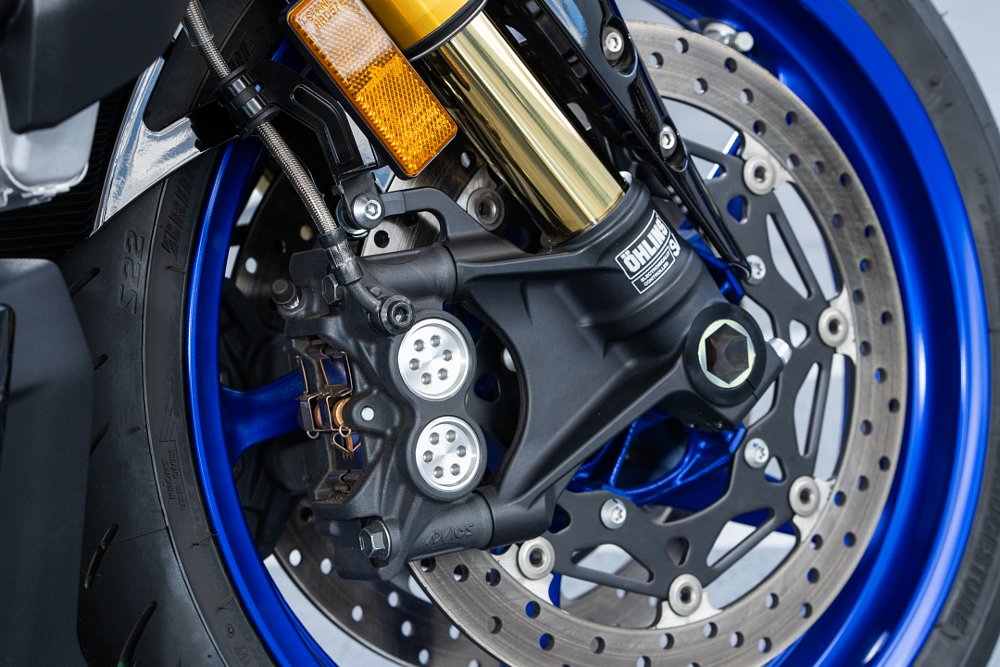
The front and rear can individually be made stiffer or softer in general (10 levels each), and then the rider can choose an amount of “support” offered under braking, mid corner, and under acceleration (11 levels each). In practical terms, a rider might prefer a softer ride but they are aggressive with the throttle and brakes. They could dial the firmness of the overall damping down, front and rear, but dial the support offered under acceleration and braking up. In theory, the suspension damping will be loose in general but when the fork starts to compress under braking the MT-10 SP’s brain will recognize it and ramp up the compression damping to compensate for the rider’s preference.
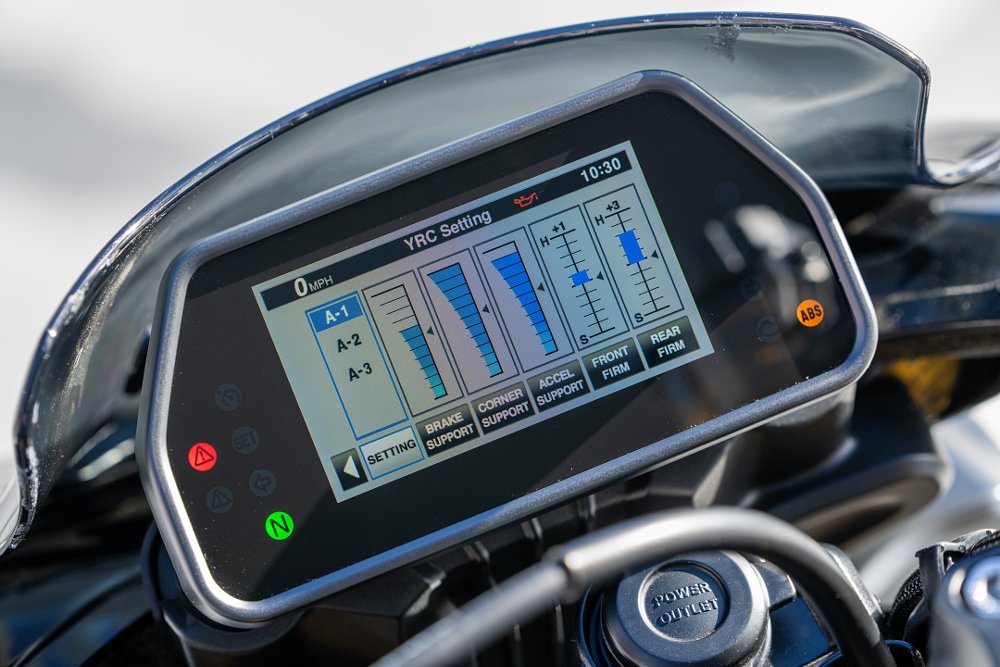
Incidentally, this MT-10 SP is quietly debuting new technology from the Swedish suspender gurus at Öhlins, spool valves, which replace more traditional needles in the damping circuits and include a "pressure compensation chamber that balances the force applied to the damper’s actuator," allegedly allowing the semi-active system to react and adjust more quickly.
SP vs non-SP: The ride
So, the $3,000 question: Does it work? One important note is that the SP’s suspension uses different overall spring rates than the standard MT-10 — 20% softer in the fork and 3% softer in the shock — likely because Yamaha feels the semi-active damping can compensate. The support modes are tricky to pick apart from the saddle, but the overall ride is definitely adjustable. Set in the 20th percentile of semi-active firmness the MT-10 SP feels cushy and soft. Sharp little bumps in the road mostly melt away and the bike seems relaxed. And for what it’s worth, I felt relaxed.
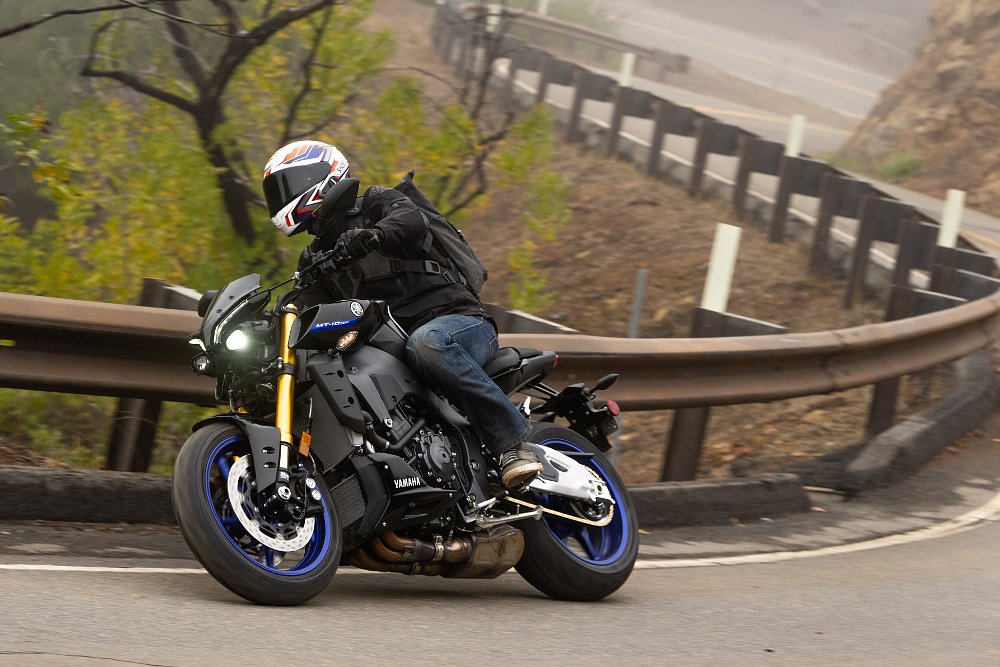
Spin the dial the other way, with firmness and support parameters in the 80th percentile, and the bike tenses up noticeably. Wrinkles in pavement and seams in highways are suddenly transmitted directly to your wrists and ankles, and to the same effect you feel much more connected to the twists and turns of the road. It’s excellent.
Impressed as I was with the street performance, more research was needed. As in, the kind of research where I go to a track day on the company dime. After negotiating an undisclosed set of terms with him, Mr. Editor Lance stamped my passport for a trip to Chuckwalla Valley Raceway, a few hours east of Los Angeles. Did you know that Lance speaks Spanish and is more handsome in person? I digress.
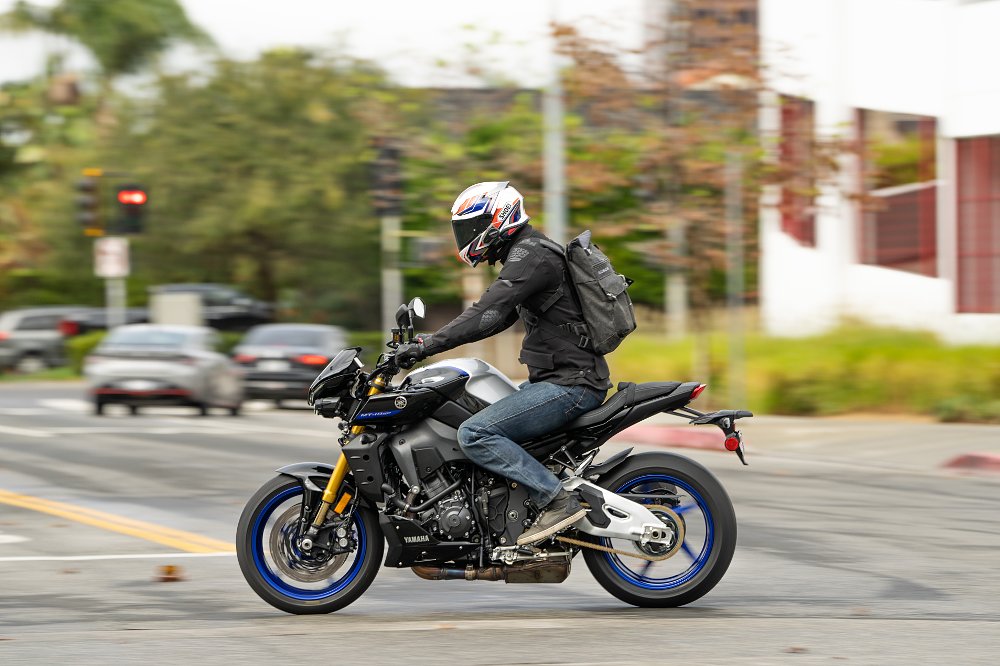
I only rode the first-gen FZ-10 once at a racetrack but it was memorable. Mostly because it felt overwhelmed by the whole situation — the suspension was good-not-great, if anything the bike seemed too tall to be stable, and yet the footpegs dragged relentlessly. This SP model feels capable of acting much stiffer than any base FZ- or MT-10 that has come before it, and lo and behold the pegs stayed clear of the track surface, at least for the first session.
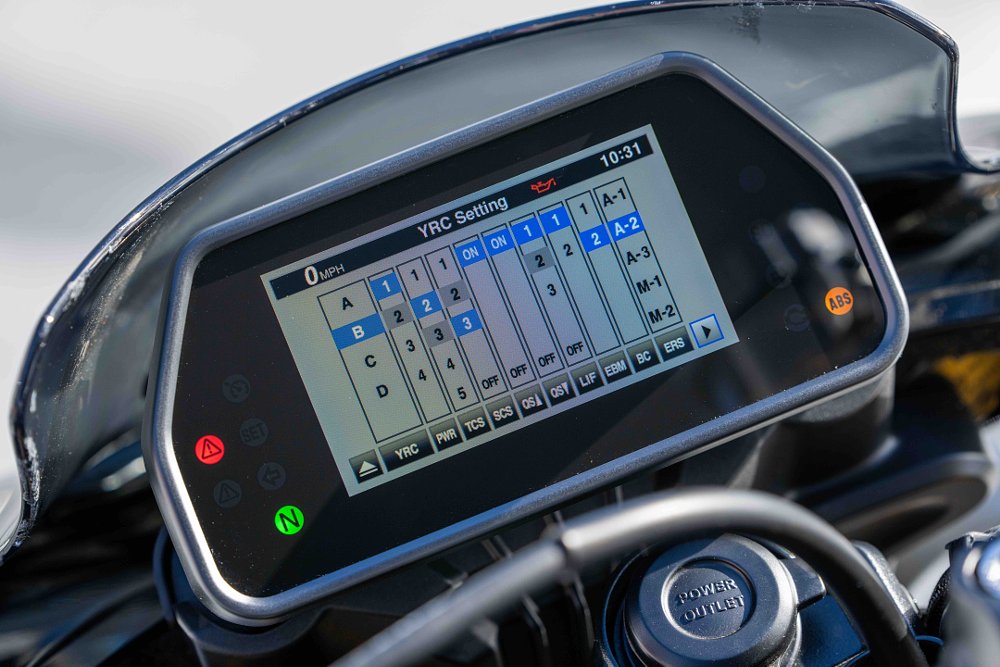
For slightly more specific data, I mounted a GoPro to record basic lap times. I switched back and forth for multiple stints with the suspension tuned fully stiff in A1 and fully soft in A3. The verdict: I preferred the feeling of the bike stiffened up, because I like the direct feedback, but the lap times were within a few tenths of a second. When the pegs eventually did drag, it wasn’t any worse with the damping dialed all the way soft, and at first that surprised me. A quick beat to think about it and it makes sense; the spring rates remain the same no matter what the damping schedules are doing and ultimately that’s what’s supporting the bike in the middle of a corner.
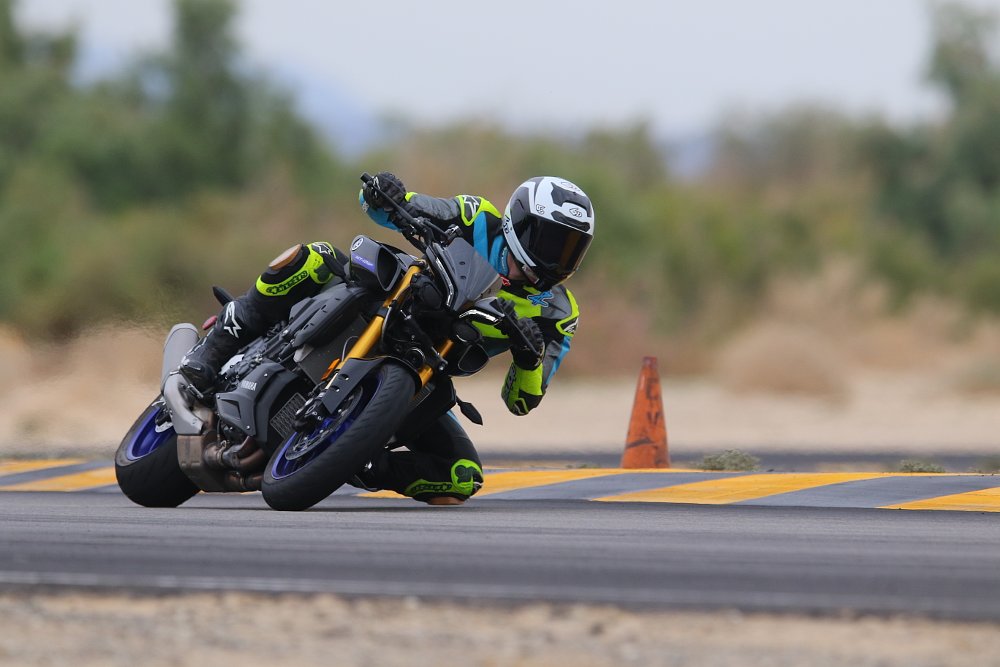
The story with the suite of electronic rider aids offered a similar upshot. Even though I’m not one to turn traction control all the way down right out of the gate, eventually I was lapping with TC and Yamaha’s slide control in the least-intrusive level 1. Without the rear tire complaining much, the small “SC” light kept blinking on the dash and it seemed to me that slide control was getting in the way. So I shut it off, leaving TC in level 1. That freed up the rear end to smear and squirm on corner exits but it still felt conservative for the lowest setting in what it billed as performance systems lifted from the flagship YZF-R1. Annoyingly, even with slide control off, the “SC” light still illuminates, apparently to signal TC interventions.
All of this is to say, the improvement of the SP version over the base model is noticeable, and worthwhile, if a little complicated. I felt pretty close to the edge of my limit on showroom-spec sport tires, and wanting an upgrade in rubber to experience what else the bike has to offer is a good sign that there’s more waiting inside the machine. To be clear, what this bike still did not do on a track was goad me into pushing for that last few percent of performance. The front brake sapped some confidence on the track, being a little dull despite a fancy, radial-pull master cylinder and steel-braided lines. Where an Aprilia Tuono or BMW S 1000 R have historically asked for later braking, more lean angle, and more acceleration, the MT-10 SP feels happiest being faster than most bikes but slower than a few.
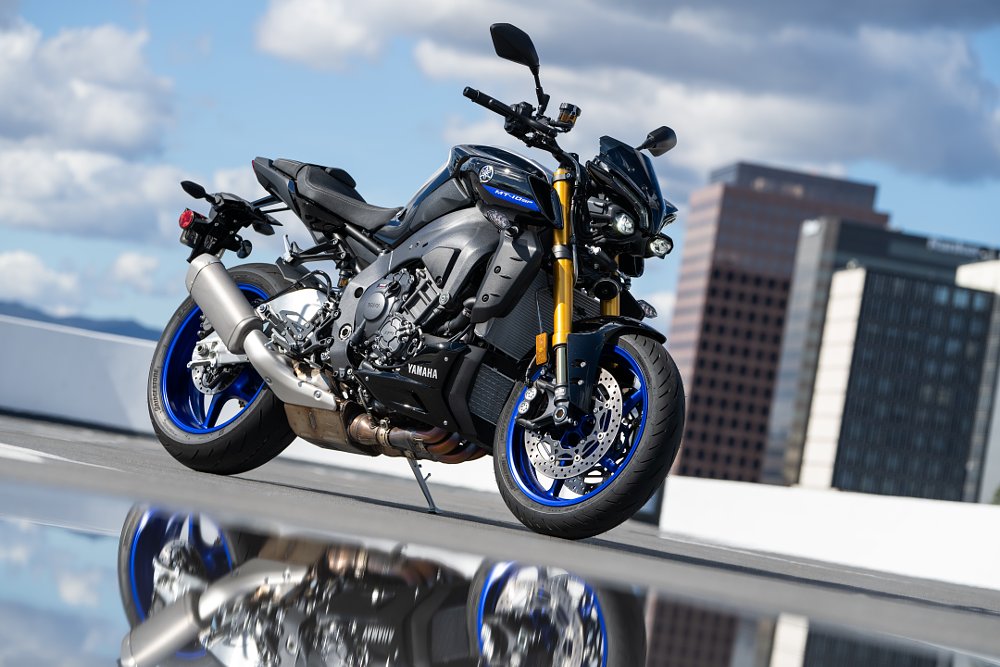
Adding a harder edge to the MT-10 is good, since it has always had an uphill battle to feel truly at home on the Mount Olympus of super-naked motorcycling. At $16,899 ($17,199 for 2023) even the SP version of the MT-10 undercuts the price of any competition that offers semi-active suspension. It is not necessarily faster or more agile than all of those European titans I mentioned earlier, especially if you really try to squeeze all of the juice out of it on a race track.
And I think that’s OK, because one of the best things about the MT-10 (and FZ-10 before it) has always been its character. It has never felt like a copycat, and this SP maintains a comfort and charm that is uniquely MT-10. Even dressed like a god, the MT-10 SP can’t help but be a regular citizen.
| 2022 Yamaha MT-10 SP | |
|---|---|
| Price (MSRP) | $16,899 |
| Engine | 999 cc, liquid-cooled, 16-valve, inline-four |
|
Transmission, final drive |
Six-speed, chain |
| Claimed horsepower | NA |
| Claimed torque | NA |
| Frame | Aluminum twin-spar |
| Front suspension | Öhlins 43 mm NIX30-SV fork, adjustable for spring preload, semi-active compression and rebound damping; 4.7 inches of travel |
| Rear suspension | Öhlins TTX36-SV shock, adjustable for spring preload, semi-active compression and rebound damping; 4.7 inches of travel |
| Front brake | ADVICS four-piston calipers, 320 mm discs with ABS |
| Rear brake | Nissin two-piston caliper, 220 mm disc with ABS |
| Rake, trail | 24.0 degrees, 4.0 inches |
| Wheelbase | 55.3 inches |
| Seat height | 32.9 inches |
| Fuel capacity | 4.5 gallons |
| Tires | Bridgestone Battlax S22; 120/70ZR17 front, 190/55ZR17 rear |
| Claimed weight | 472 pounds |
| Available | Now |
| Warranty | 12 months |
| More info | yamahamotorsports.com |














